Open-source technology has proved to be a great boon for electronics professionals who wish to help healthcare workers in combating the COVID-19 pandemic
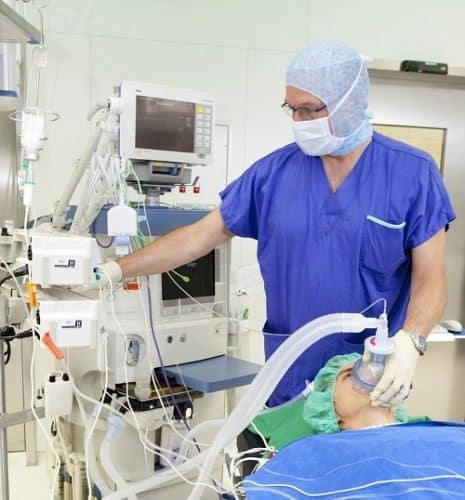
Continuing with the efforts for developing medical ventilators to meet their growing shortage, here’s a list of some more innovations.
You can the visit the part-1 of this article here.
Renesas’ open-source ventilator
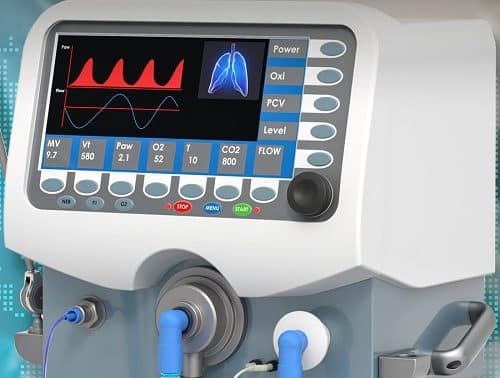
One of the leading suppliers of advanced semiconductor solutions, Renesas has introduced a new open-source ventilator system reference design to help developers create ready-to-assemble electronic boards for medical ventilators.
The electronic board can control the tidal volume and mixture of gas that are delivered to the patient while monitoring the patient’s current status. The system features high-end MCUs, sensors, motor control and Bluetooth connectivity for real-time monitoring via mobile devices.
Highlighting feature: Portable and can be used with or without gas tanks.
UCL-Ventura breathing aid

A team of engineers and clinicians from the University College London, the University College London Hospital and Mercedes-AMG High Performance Powertrains have devised the UCL-Ventura breathing aid, a Continuous Positive Airway Pressure (CPAP). It is a device that works by pushing in an air-oxygen mixture into the mouth and nose at a continuous pressure, keeping the airways open and increasing the amount of oxygen entering the bloodstream. So, even if an oxygen mask proves to be insufficient, the Ventura breathing aid can help COVID-19 patients to breathe more easily.
Highlighting feature: Tested and approved by MHRA, the medical regulatory body of the UK.
OxyGEN
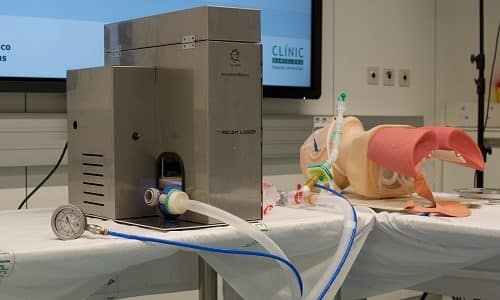
Spain-based IoT prototyping company, Protofy along with the Hospital Clínic, Hospital Germans Trias i Pujol and the UB of Barcelona has made a medical emergency device called the OxyGEN. It is an automated ventilator that works very much like an ordinary medical ventilator. It is highly useful in emergency situations where enough ventilators are not present. The device is available in two different versions: OxyGEN-M (for makers) and OxyGEN-IP (for industrial production).
Highlighting feature: Approved by the AEMPS (Spanish Agency for Medicines and Health Products) for medical use, it is low-cost and simple to design.
Medical Ventilator by PrevailNY
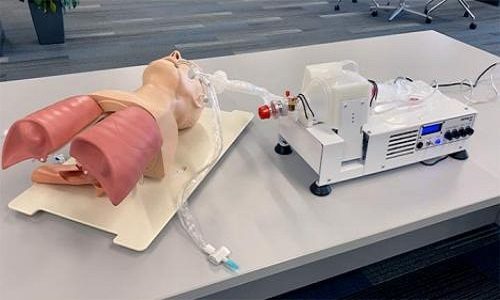
Pandemic Response Emergency Ventilation Assembled In Liverpool New York (PrevailNY) is a mechanical ventilation system built by engineers from JMA, a U.S-based wireless communications solution provider in collaboration with Dr John Callahan, MD and Syracuse University. The system utilizes a manual resuscitator kit known as a BVM (bag valve mask) or AMBU bag. Prevail NY supports low tidal volume ventilation (LTTV) for acute respiratory distress syndrome (ARDS) as found in COVID-19 patients with damaged lungs.
Highlighting feature: Compatible with components that retain humidification and offer HEPA filtration.
VentCore
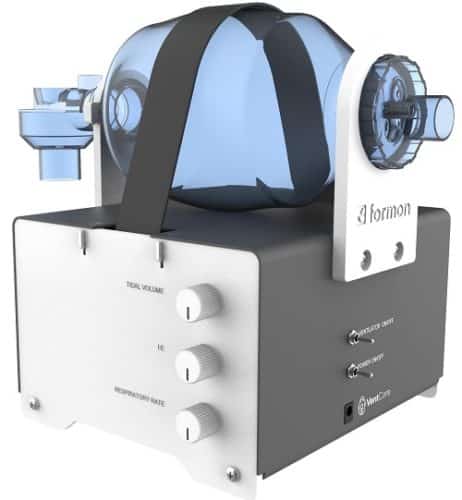
VentCore is an open-source ventilator project designed and developed by Formon in Prishtina, Kosovo. The device automates the operation of a BVM (bag-valve-mask) in a simple, inexpensive and controllable way for emergency cases. Most of the moving parts including the belt mechanism for holding and compressing the BMV are 3D printable. Besides the mechanical parts, the system also comprises electronic boards designed specifically for VentCore. The entire project was completed within 5 days with the assistance of several medical advisors.
Highlighting feature: Unique design with build with simple 3D printed parts.













